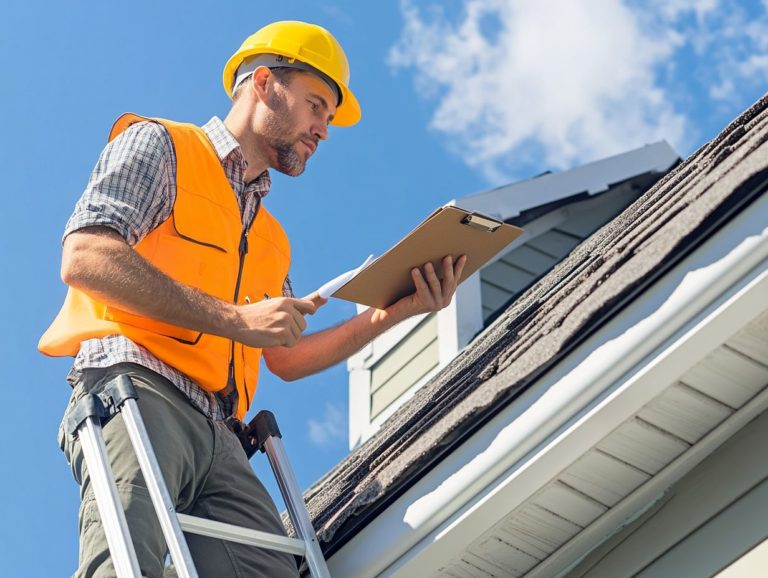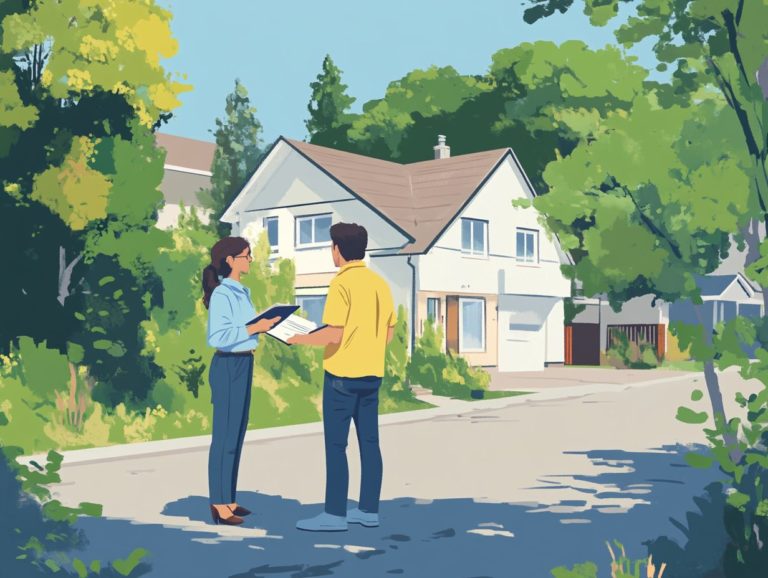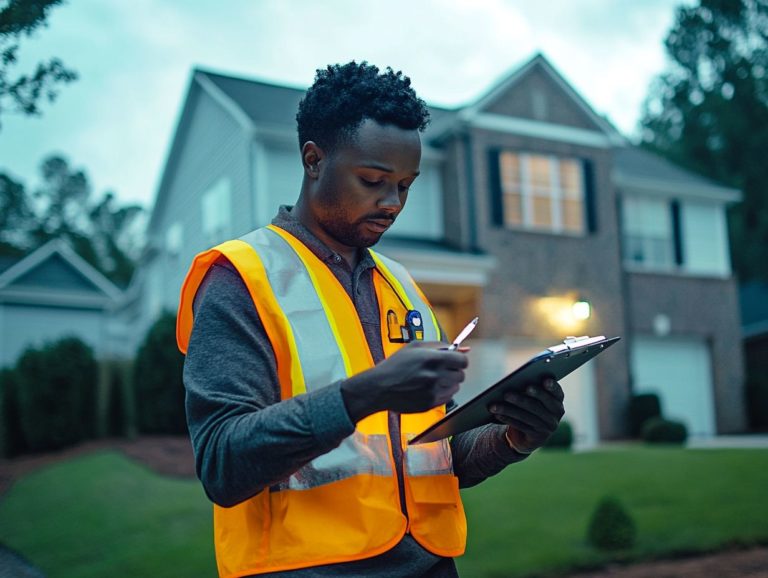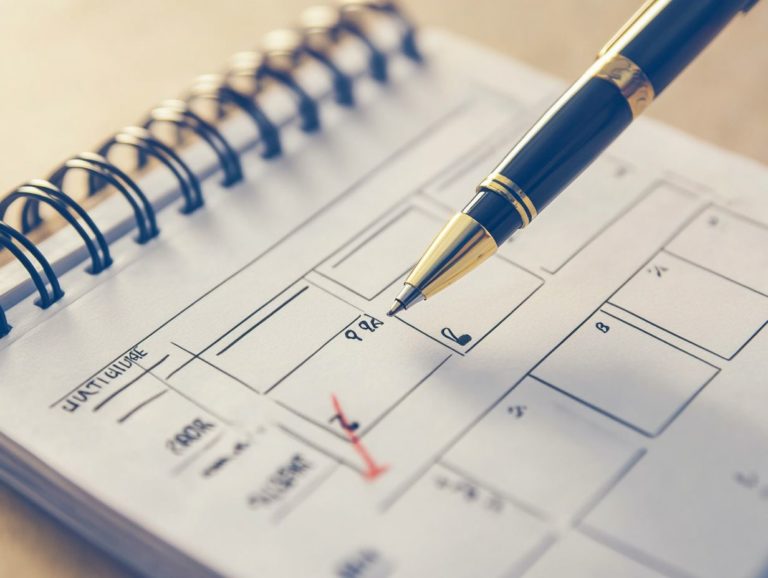The Importance of a Thorough Home Inspection
Buying a home is one of the biggest investments you will make. It’s crucial to ensure that your investment is secure.
A thorough home inspection can reveal hidden issues, giving you peace of mind and protecting your financial interests. This article explores the purpose of a home inspection, highlights key areas to examine, and identifies common problems that may arise.
It also covers the benefits of a detailed inspection, provides tips for choosing the right inspector, and outlines how to prepare effectively.
Whether you’re a first-time buyer or a seasoned homeowner, understanding home inspections is vital for a successful purchase.
Contents
- Key Takeaways:
- The Purpose of a Home Inspection
- What to Look for During a Home Inspection
- Potential Issues Found During a Home Inspection
- Benefits of a Thorough Home Inspection
- Choosing a Home Inspector
- Preparing for a Home Inspection
- Frequently Asked Questions
- What is the importance of a thorough home inspection?
- Who should be present during a home inspection?
- What areas of the home are typically included in a thorough home inspection?
- Why is it important to hire a professional for a thorough home inspection?
- What are some common issues that may be found during a thorough home inspection?
- Is a thorough home inspection necessary for new construction homes?
Key Takeaways:
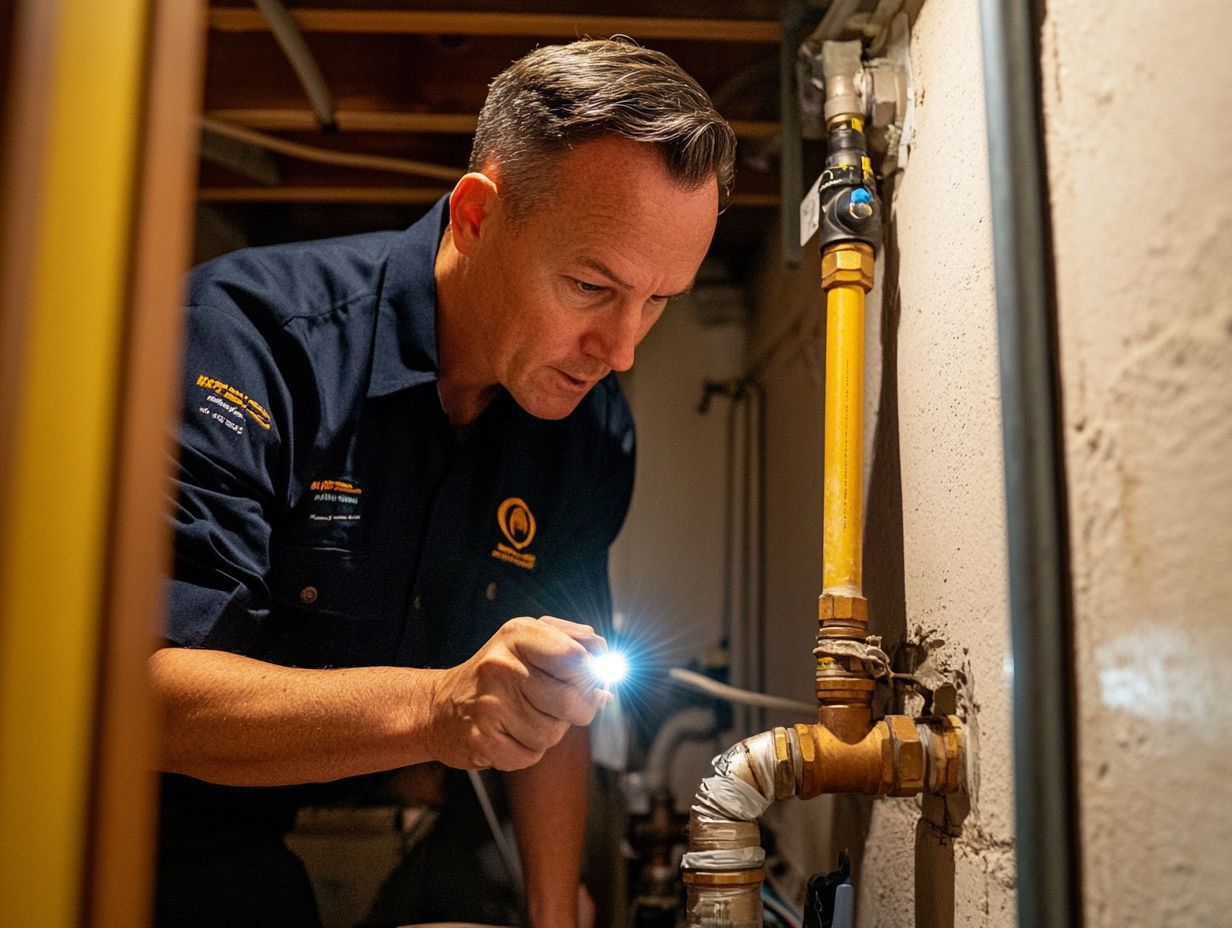
1. A thorough home inspection is your safety net against potential issues.
2. Focus on the foundation, roof, plumbing, electrical, and heating, ventilation, and air conditioning (HVAC) systems.
3. Look out for red flags like water damage, faulty wiring, and structural issues.
The Purpose of a Home Inspection
The purpose of a home inspection is to ensure you fully understand the property’s condition before sealing the deal. This comprehensive assessment is essential for both buyers and sellers, as it involves understanding the process of home inspections.
It acts as a powerful negotiation tool, helping you pinpoint both major and minor issues. Sellers gain valuable insights that could influence their closing date or negotiation dynamics with prospective buyers.
Engaging a licensed inspector means receiving a detailed report that outlines significant concerns and recommended actions, paving the way for a smoother transaction.
Why a Home Inspection is Necessary
A home inspection is a game-changer for both buyers and sellers. It reveals potential issues within the property that could impact its value and safety, highlighting the role of home inspections in home sales.
This evaluation provides crucial insights into elements like structural integrity, plumbing reliability, and electrical functionality details that often escape the casual observer during a simple viewing.
For buyers, uncovering hidden problems helps make a more informed decision and serves as a powerful negotiation tool. When issues are identified, you can lower the purchase price or request essential repairs before finalizing the deal.
For sellers, knowing the current condition of their property allows them to address issues proactively, facilitating a smoother transaction with the guidance of their real estate agent. A thorough inspection builds confidence in the transaction, protecting the interests of both parties.
What to Look for During a Home Inspection
During a home inspection, identifying key areas and components is essential. This detailed evaluation can significantly impact your buying or selling journey, as it provides insights into understanding the benefits of home inspections, ensuring informed decisions.
Key Areas and Components to Examine
When conducting a home inspection, focus on the HVAC system, foundation, electrical system, and plumbing. Each of these components plays a crucial role in the property’s overall functionality and safety.
Neglecting these areas can lead to significant complications for both buyers and sellers. For buyers, undetected issues with the HVAC system could result in costly repairs later, affecting budget and comfort.
A compromised foundation undermines the property’s structural integrity and creates serious safety hazards. Sellers should also be cautious; overlooking potential electrical or plumbing failures before listing could lead to lower offers or extended time on the market.
Buyers often prefer homes that require minimal immediate repairs. Understanding these critical areas during the inspection process is vital for making informed decisions and ensuring a smoother transaction.
Potential Issues Found During a Home Inspection
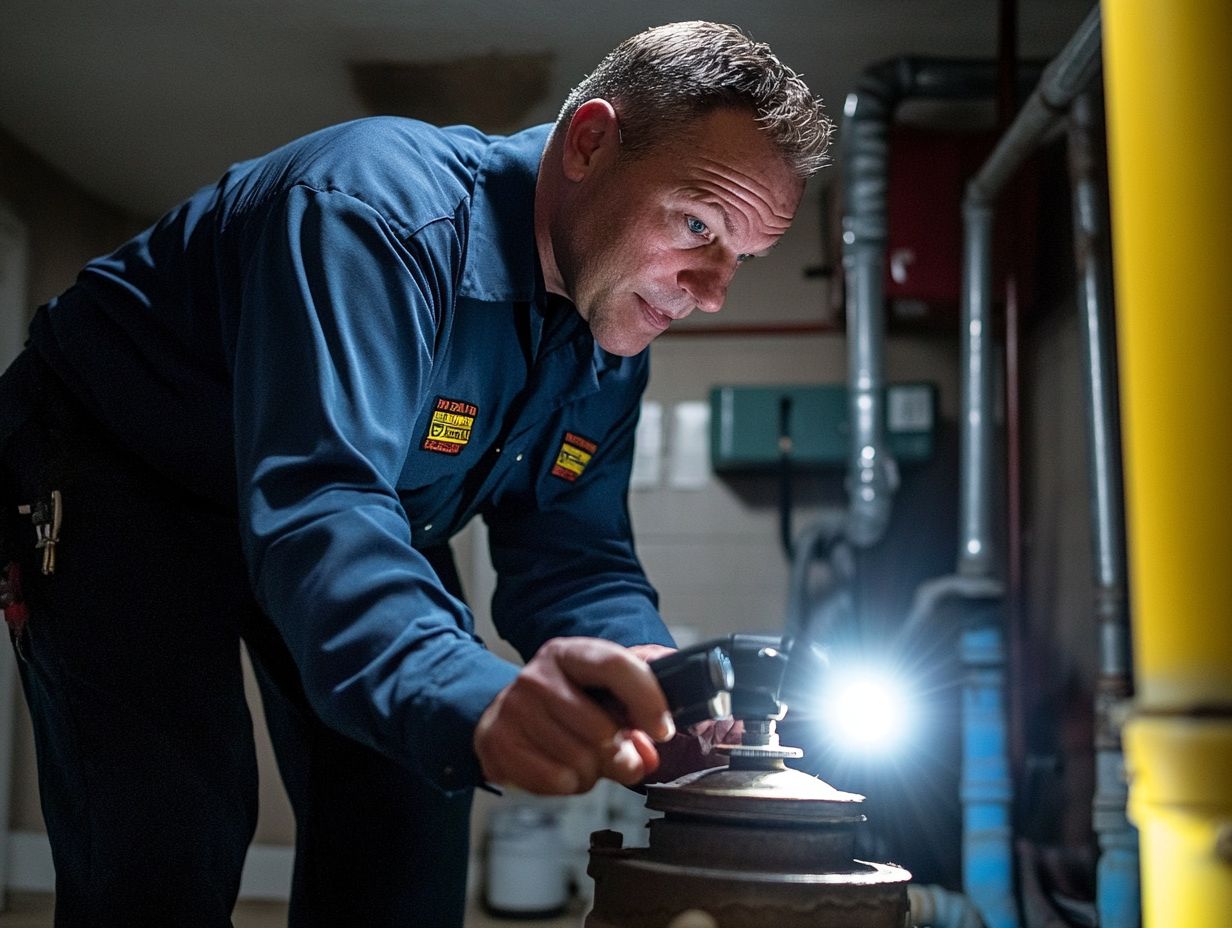
During a home inspection, you may encounter potential issues that can vary significantly ranging from minor cosmetic flaws to major structural concerns.
These findings serve as crucial red flags that can impact your decision-making as a buyer and shape the seller s approach in negotiations.
Common Problems and Red Flags
You might encounter mold, structural issues, and safety hazards. These problems can affect the property’s value and livability.
Understanding these issues is essential. They often indicate underlying problems that, if not addressed, could escalate.
For example, mold growth can signal hidden moisture problems, leading to serious health concerns and expensive fixing.
Structural issues may compromise your home s safety, potentially requiring extensive repairs like reinforcing beams or fixing foundational cracks. Safety hazards, such as outdated electrical systems or inadequate smoke detectors, pose risks that not only threaten residents’ safety but can also diminish the property s market appeal.
Both buyers and sellers should be on the lookout for these red flags to make informed decisions that protect their investments.
Benefits of a Thorough Home Inspection
A thorough home inspection presents a wealth of benefits, including both financial and safety advantages, as highlighted in understanding the necessity of home inspections.
It equips you, whether you re a buyer or a seller, with a comprehensive assessment of the property’s condition, highlighting any potential future maintenance needs.
This insight enhances your decision-making process and ensures peace of mind as you navigate the intricate world of real estate.
Financial and Safety Benefits
The financial and safety advantages of a home inspection are substantial. By identifying potential repairs early on, you can save yourself from facing significant costs down the line, while ensuring that your living environment is safe and sound.
Finding issues like faulty wiring, plumbing leaks, or structural concerns before making a purchase allows you to negotiate better terms or even back out of a deal that could prove financially burdensome. Discovering hidden hazards not only leads to long-term savings but also safeguards the health and safety of everyone who lives there.
Investing in a home inspection can save you money and provide peace of mind. It confirms you re making a smart choice for your family s future.
Choosing a Home Inspector
Selecting a qualified home inspector is essential for a thorough inspection. This decision shapes your understanding of the property’s condition and informs your next steps, especially when understanding the need for home inspections.
Factors to Consider and Questions to Ask
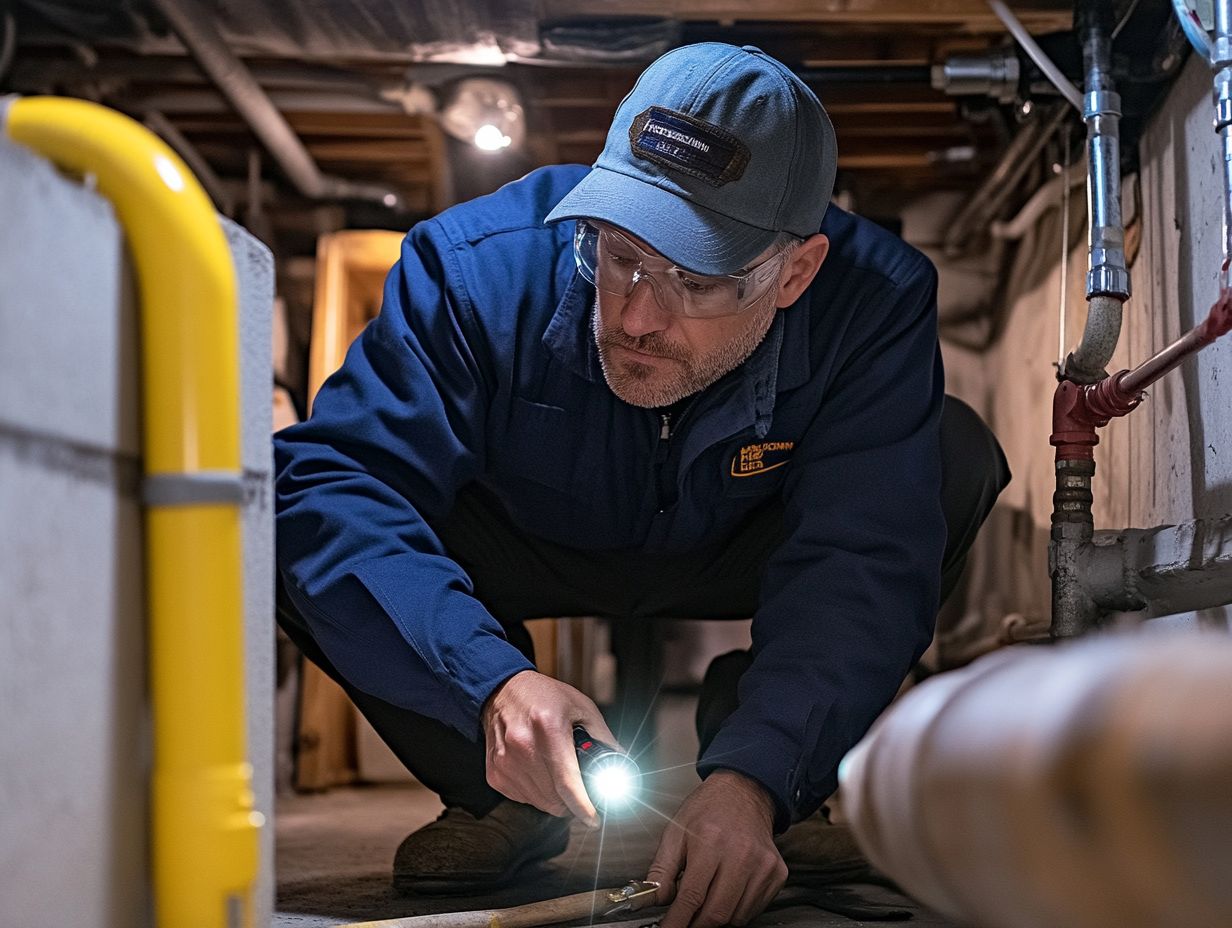
When choosing a home inspector, ask about their experience and licensing. What standards do they follow for inspections?
Consider key factors like licensing, experience, and their adherence to industry inspection standards. This ensures you receive thorough and accurate assessments.
Evaluate their educational background and any specialized training they may have undergone. An inspector with a solid education often stands out, thanks to their deep understanding of building codes and inspection methodologies.
Customer feedback is invaluable in gauging an inspector s reputation; reviews and testimonials offer insights into their reliability and competence. Additionally, reviewing sample reports can reveal their attention to detail and ability to communicate findings effectively both crucial for making informed decisions during the home buying process.
Preparing for a Home Inspection
Preparing for a home inspection requires you to follow several key steps that both buyers and sellers should embrace to ensure a seamless inspection experience and achieve the best possible outcomes.
Prepare carefully to ensure a smooth inspection. This will help you make informed decisions moving forward.
Steps to Take Before the Inspection
Taking proactive steps ensures your inspection goes smoothly! Start by making sure all areas are easily accessible, fixing small problems, and meeting inspection rules.
Begin by clearing pathways to essential spaces such as the attic, basement, and crawl spaces. This not only helps your inspector navigate but also creates a welcoming atmosphere for a thorough evaluation.
Tending to visible issues like leaky faucets, chipped paint, or broken tiles can help you avoid red flags during the inspection. Make sure all utilities, including water and electricity, are fully operational to enable inspectors to complete their evaluations efficiently, paving the way for a more favorable inspection outcome.
Frequently Asked Questions
What is the importance of a thorough home inspection?
A thorough home inspection is crucial for identifying any potential issues or hazards in a property. It provides buyers with a clear understanding of the home’s condition and helps them make informed purchase decisions. For more insights, check out understanding the importance of home inspections.
Who should be present during a home inspection?

Both the buyer and the seller should be present during a home inspection. This lets everyone ask questions and ensures all parties understand the inspection report.
What areas of the home are typically included in a thorough home inspection?
A thorough home inspection usually covers the structural components, electrical system, plumbing, HVAC (heating, ventilation, and air conditioning) system, roof, exterior and interior of the home, as well as any additional features like a pool or fireplace.
Why is it important to hire a professional for a thorough home inspection?
A professional home inspector has the knowledge, expertise, and tools to assess the property thoroughly and identify potential issues. Understanding the home inspection process can help you gain an unbiased opinion and receive valuable insights and recommendations.
What are some common issues that may be found during a thorough home inspection?
A thorough home inspection may uncover issues such as structural damage, faulty electrical or plumbing systems, mold or pest infestations, roof leaks, and other safety hazards. Understanding the key role of home inspections in real estate is crucial, as these issues can affect the value and safety of the home if not addressed.
Is a thorough home inspection necessary for new construction homes?
Yes, a thorough home inspection is recommended for new construction homes as well. It helps identify any construction defects or code violations that may have been missed during the building process, giving the buyer peace of mind and ensuring the home is safe and up to standard.
Contact your inspector today and get ready for a smooth inspection!


